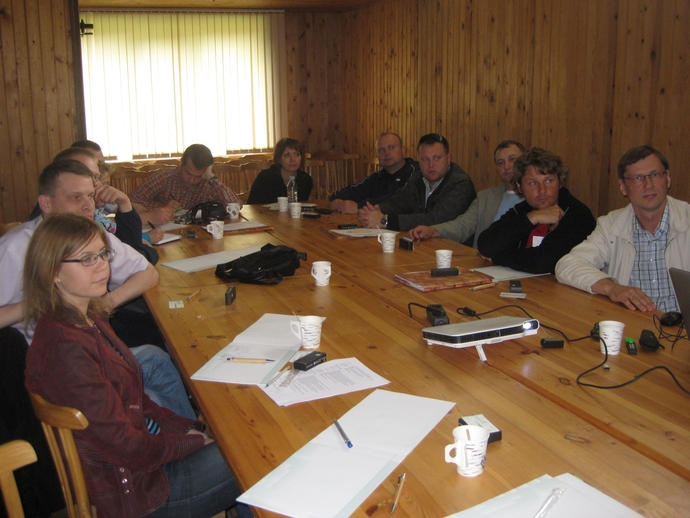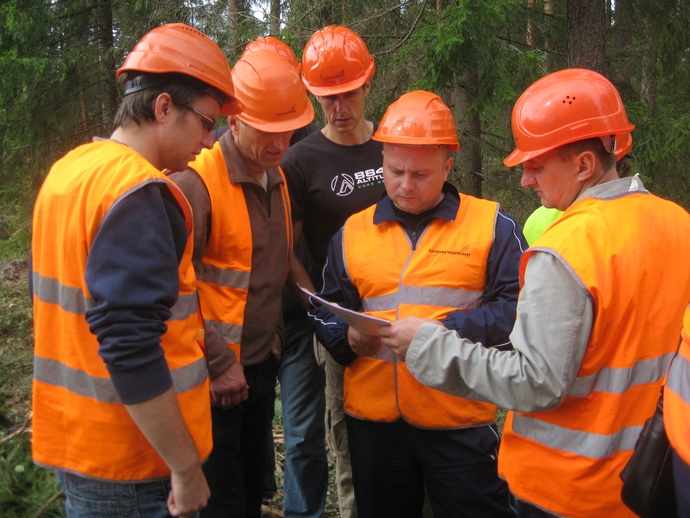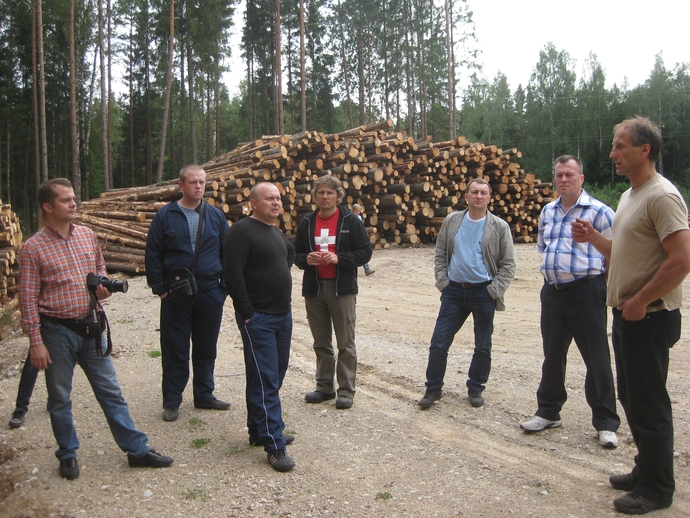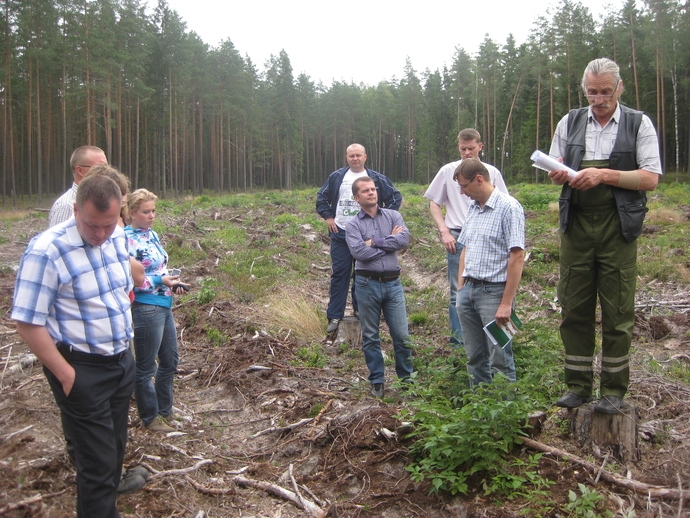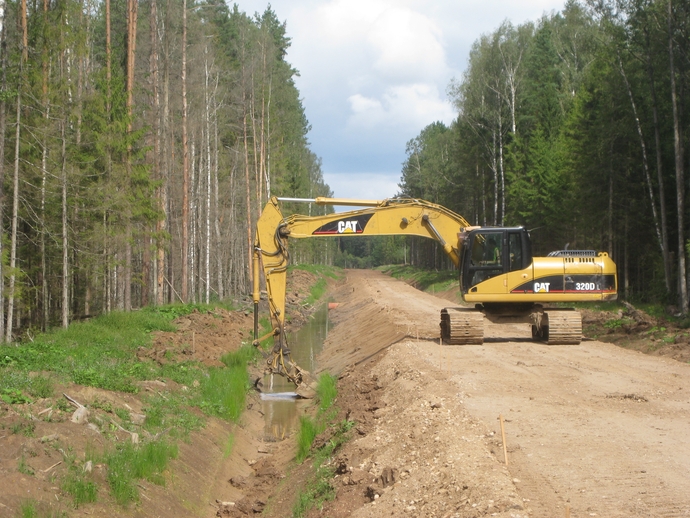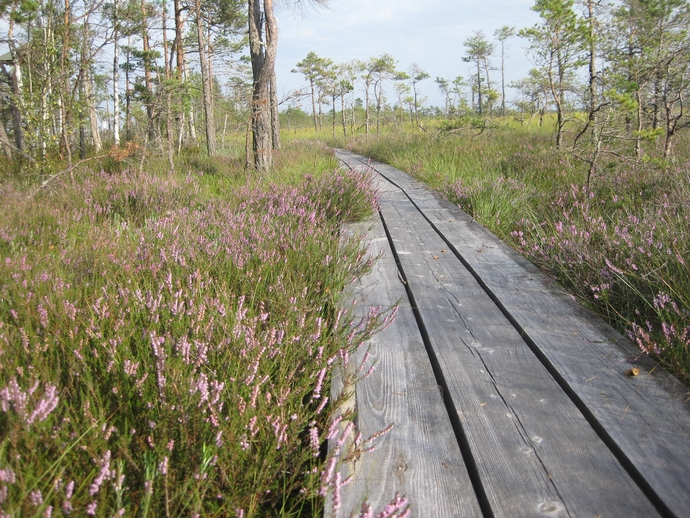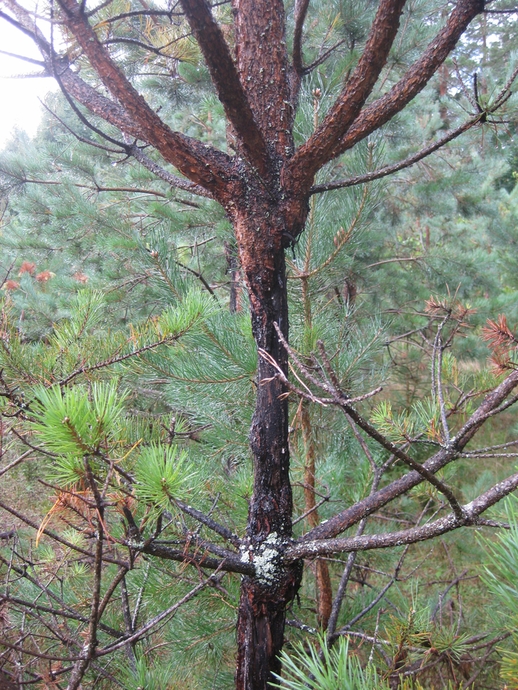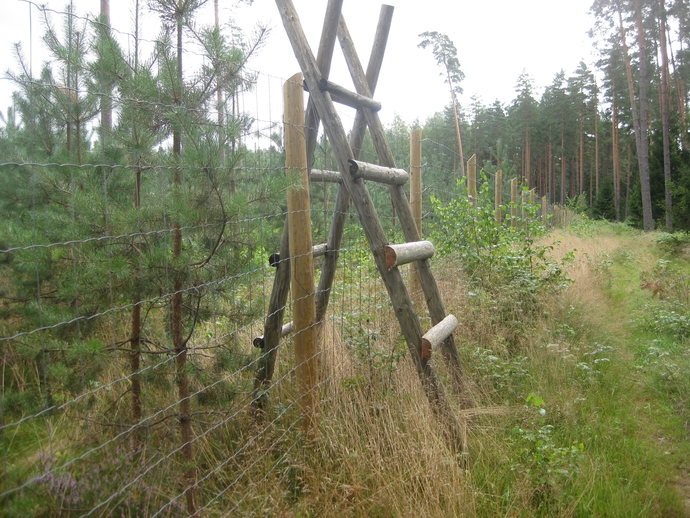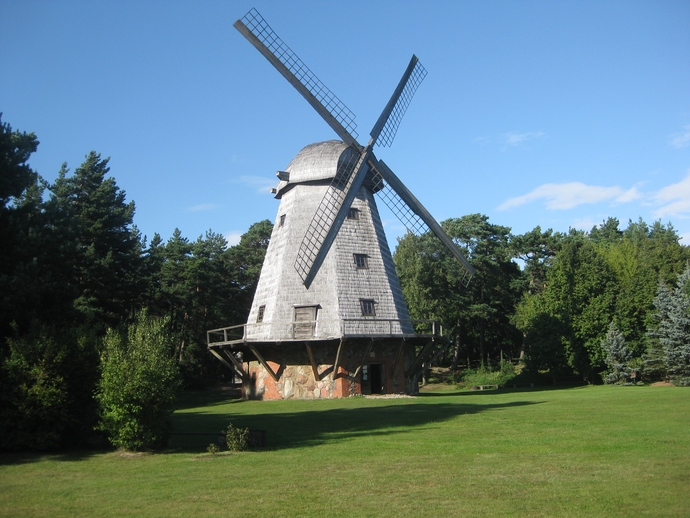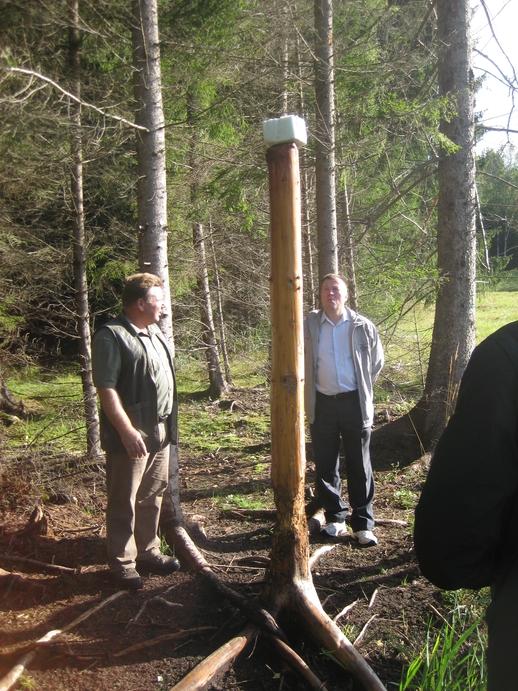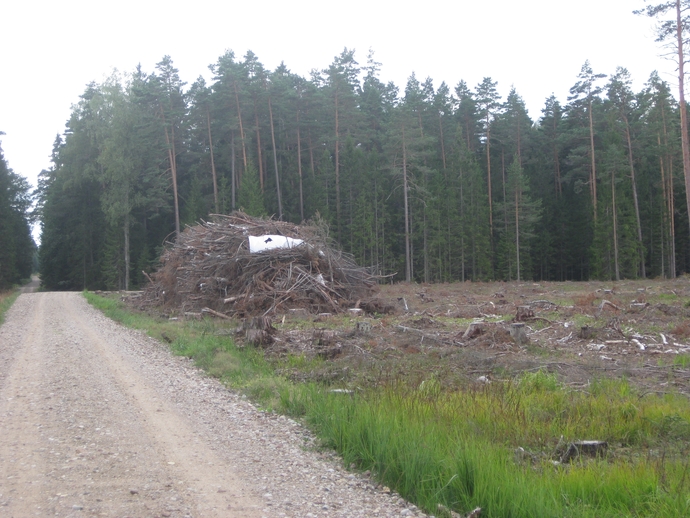Intensive forest management in Latvia: effect is obvious
In August, on the initiative of the Silver Taiga Foundation a study tour to Latvia was organized for the employees of the Forest Service of the Komi Republic. The target of the trip was to study the experience of this country in the intensive forest management.
It was a sort of “return visit” of the specialists from Komi to Latvia: last summer twelve foresters from this country took a course in natural dynamics of taiga landscapes and history of forest use in Komi, which was organized and conducted by the “Silver Taiga” ecologists. Thanks to these very contacts representatives of the forest service from Komi got a chance to get acquainted with the experience of Latvia. Five specialists from the Forest Committee of the Komi Republic, four forest unit managers from different districts of Komi, and two employees of the Silver Taiga Foundation took part in the trip.
During the week the group got familiar with the experience in the organization of forest use and restoration, construction of forest roads and melioration systems, organization of game husbandries and recreation, interaction with the local population and with the system of forestry and forest management organization for state forests in general in one of the most forested districts of Latvia – Northern Kurland. It should be noted that currently almost half of the forest in Latvia is private.
According to the participants of the tour, the most interesting thing is how the forestry in Latvia, which came out of the soviet administrative system, same as ours at the end of 1990s, managed to change the forest management situation dramatically in a short time period and organize an efficient intensive forest use. This enables Latvia, a small-area young state, to successfully compete with other participants of the world market of forest products and permanently develop. At the present moment, the share of the forest sector in the gross product of the Russian Federation is only 2,5 percent, whereas in Latvia it is 24 percent. Therefore, it’s no wonder that the profession of a forester is very respected and important there.
In Latvia, same as here, there is a state forest service, which carries out supervision and control over the fulfillment of the forest laws. There is also “Latvia’s State Forests” – Joint Stock Company controlling all state forest funds, with the only shareholder – the state. There is no forest lease.
JSC “Latvia’s State Forests” is the main manager of Latvian forests, i.e. it plans logging, methods of reforestation and forest cultivation, activities on protection of the forest against pests and fires; it organizes recreation use of forest lands and arranges a game husbandry on the territory of the whole state forest fund (in private forest it’s done by the owners). As for Russia, according to the Forest Code dd. 2006, forest management is imposed on the lease holders and they are doing it as they can.
Specialists of “Latvia’s State Forests” are first of all managers. They plan all activities in the forest: from seed harvesting, seedling production, forest planting to its logging, – and the contractors for execution of all these works are selected by them on a competitive basis. Harvesting, i.e. forest felling, is done by private companies, but all the felled wood belongs to JSC “Latvia’s State Forests”. Fixed amount of the profit of this company, primarily, from the wood sales, goes to the state budget, in the form of an income tax. The company controls the residual profit itself, directing it foremost to the construction of forest roads, repair of the melioration systems, reforestation and tending of forest, advance training of its employees, scientific investigations. The more wood will be received from one unit of forestland, the more profit the company will get, the more contribution to the state budget will be made. Therefore, both the state and the society of Latvia, as well as population of the forest districts performing forestry works, and, of course, forest specialists working in the joint stock company are satisfied with the intensive forest management. The employees of the company are highly qualified; they have a respectable salary, secure social protection, and high competition for such jobs.
Of course, it’s impossible to adopt the Latvian experience directly, because currently the forest management system in Russia and Komi is absolutely different and, unfortunately, it’s far from being so efficient. However, to change the system it’s necessary to have an idea about different methods of forest management and administration. At least, one of the advantages of the trip of our foresters to Latvia is evident. As they admitted themselves, now it became apparent for them that an intensive forest management is a well thought-out interconnected and planned for decades ahead, well adjusted and financially supported system of forest cultivation and use rather than separate activities on forest planting, thinning or introduction of harvesters and forwarders on the logging sites, as people are often apt to think here. Reliability and efficiency of this system made the most unforgettable impression from the trip to Latvia. Although, there were surely many other pleasant impressions. The host party suggested a carefully thought up cultural program fitting well into the topics of the trip, which included participation in the Day of Riga, visiting of reserves and natural parks, as well as acquaintance with natural, historical, and cultural sites of Kurland.
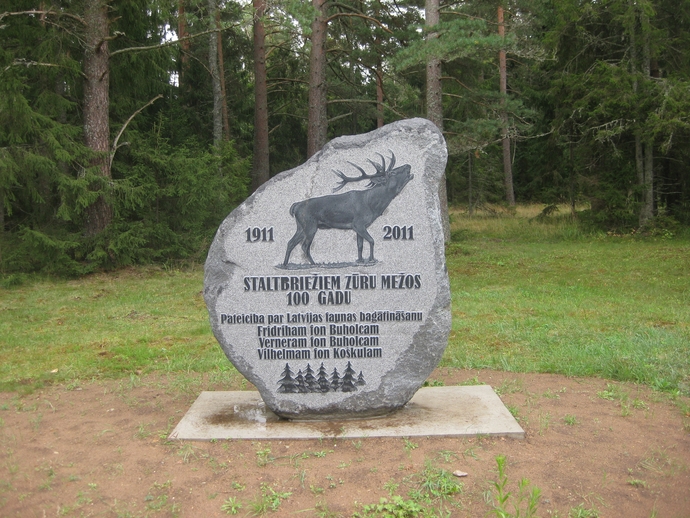
A memorial sign honoring a 100-year anniversary of a red deer re-acclimatization in the forests of Kurland
Photo: Y.Pautov
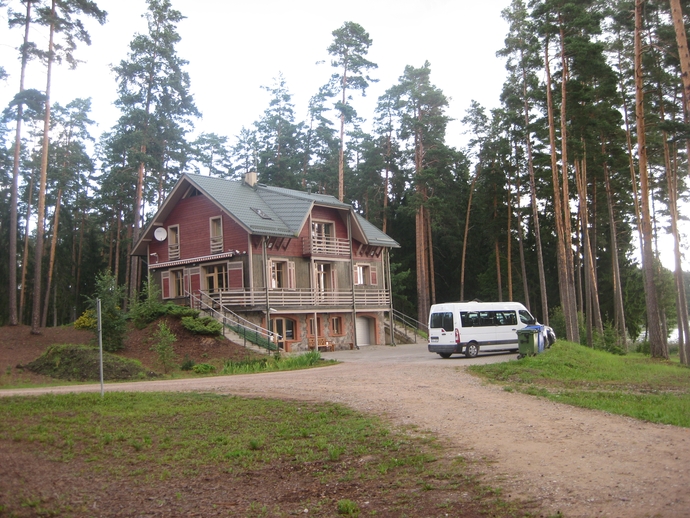
A forest hotel JSC “ Latvia’s State Forests” is popular among hunters, fishermen, tourists, Latvian foresters and their guests

